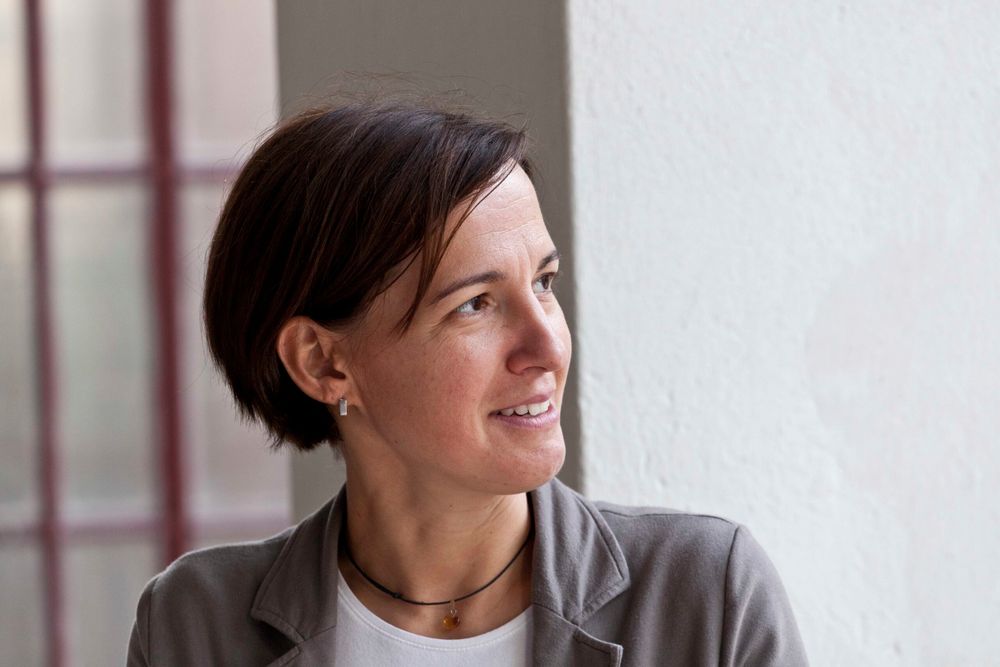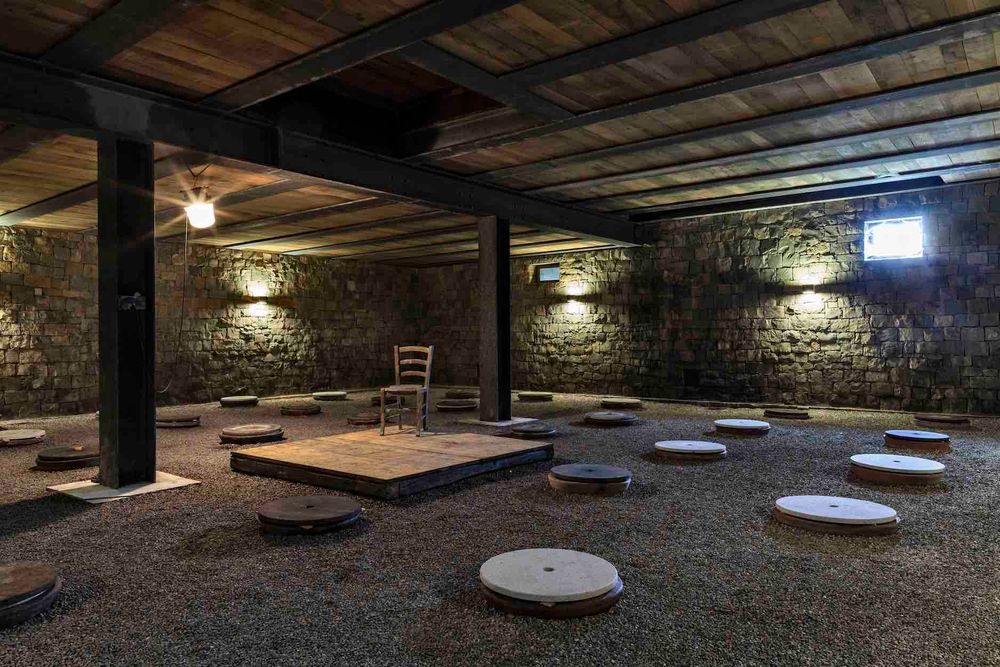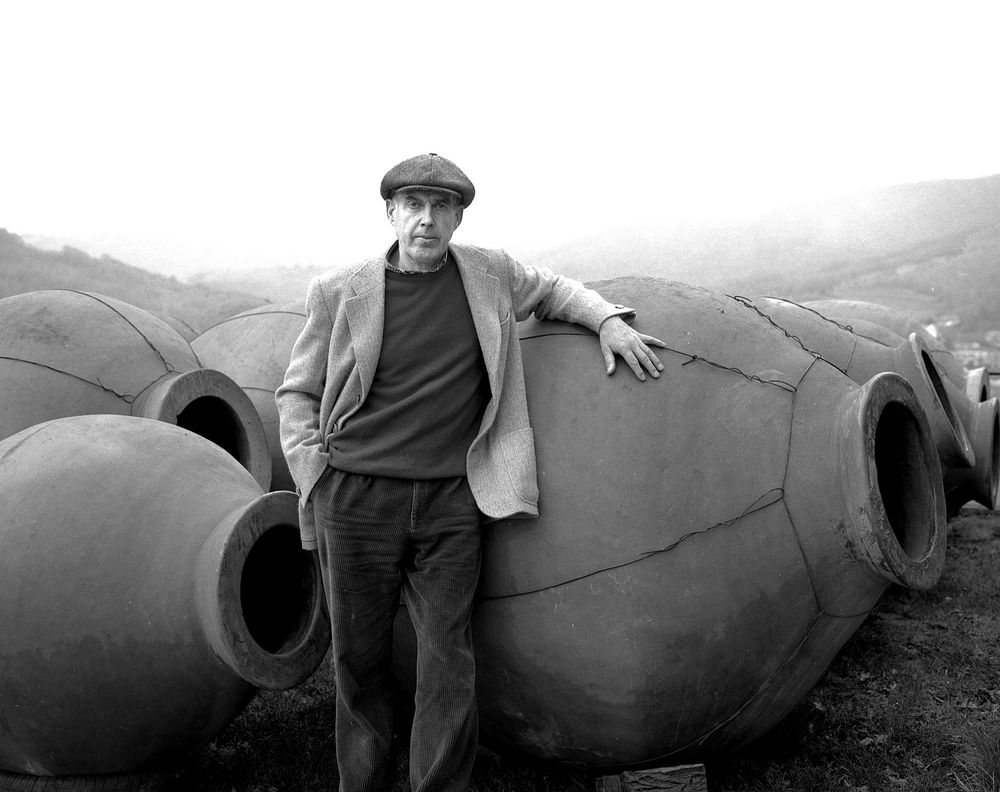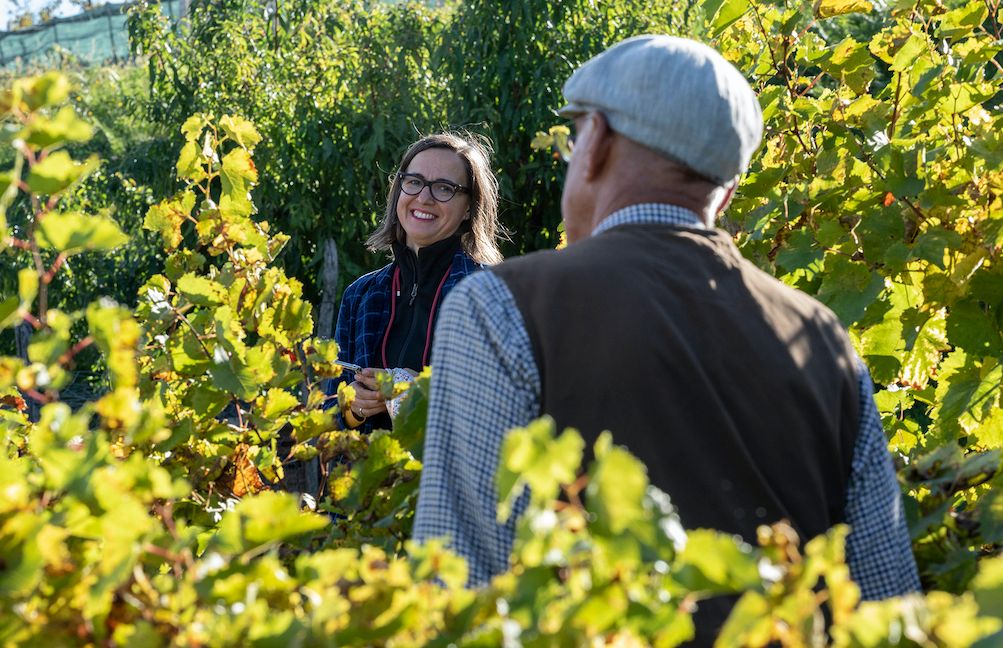“The one lesson we have learned is that nature does not bend to our will and can keep going on without us,” says Mateja Gravner.

Mateja Gravner
PETER DEAN: How has life been for the past 18 months?
MATEJA GRAVNER: Nature knows no pauses and hasn’t stopped: we went on with the works in the vineyards. On the opposite, travelling as well as winery visits have completely stopped.
How else has the pandemic affected your winery?
Luckily, very little when it comes to production. Sales have remained high: many wine shops have embraced the delivery option and when things have reopened restaurants have witnessed an increase in how much customers are spending on average for wine. Regarding sales and namely clients and private consumers’ attention, I can say that the more time available has allowed many to collect more information and deepen their knowledge of products and producers.
Has life returned to normal yet?
No, there are still many restrictions.

The amphora room at Gravner has been supplemented by qvevri buried outside in the estate
What has been the hardest thing about adapting to the ‘new normal’?
Talking about the winery, I’d say uncertainty and lack of predictability in carrying out the work. We have vineyards across the Italian-Slovenian border and there have been some moments when borders were closed, some others when rules to cross the border changed fast (usually overnight) and this made it extremely difficult for us to be updated with the ever-changing rules and therefore be able to comply with them.
Talking about the markets, the hardest thing has been losing the human connection.
Has anything good come out of it? If so what?
The final consumer has much more attention for the product.
What lessons do you think have been learned in the past 18 months?
That nature does not bend to our will and can keep going on without us.

Josko Gravner: started fermenting his wine in qvevri in 2001 after a visit to Georgia
Has it led to anything new in the pipeline? Cuvées, varietals, styles etc?
No.
Is 2021 going to be a good harvest?
We won’t know until grapes have arrived at the cellar. Until now it has been a vintage with strong rainfalls alternate to hot temperatures, which is perfect for downy mildew and powdery mildew. Therefore we had an extremely huge amount of work to do in the vineyards.
Any particular characteristics to note?
No.
How have you changed your business model over the past 18 months? (distribution channels, importers and distributors you work with?)
I would say we haven’t changed our model but we are even more careful about whom our wine is sold to and where.
Did you go Direct To Consumer? If so what were the lessons learned?
No, we haven’t enough wine to do DtC sales.
Are you going to continue with a different trading model moving forwards?
No.
Have you changed which countries you are distributing to?
No.
Has exporting to the UK changed at all – is it logistically more difficult and if so – are other countries more attractive/ profitable?
Bureaucracy has become a little more difficult but the UK is a mature market with a good knowledge so, together with the importer, we believe there won’t be a huge backlash – but we work in the premium range which is able to partially absorb these additional burdens.






























